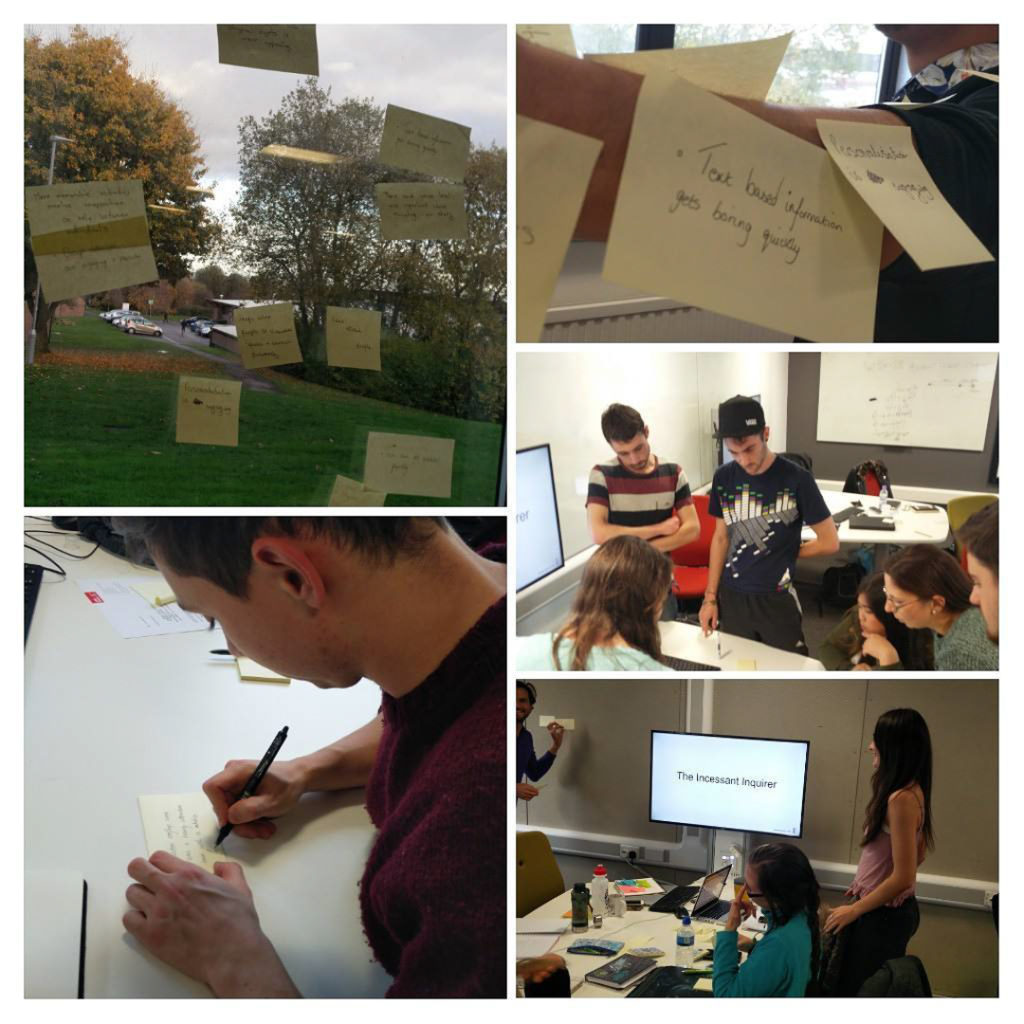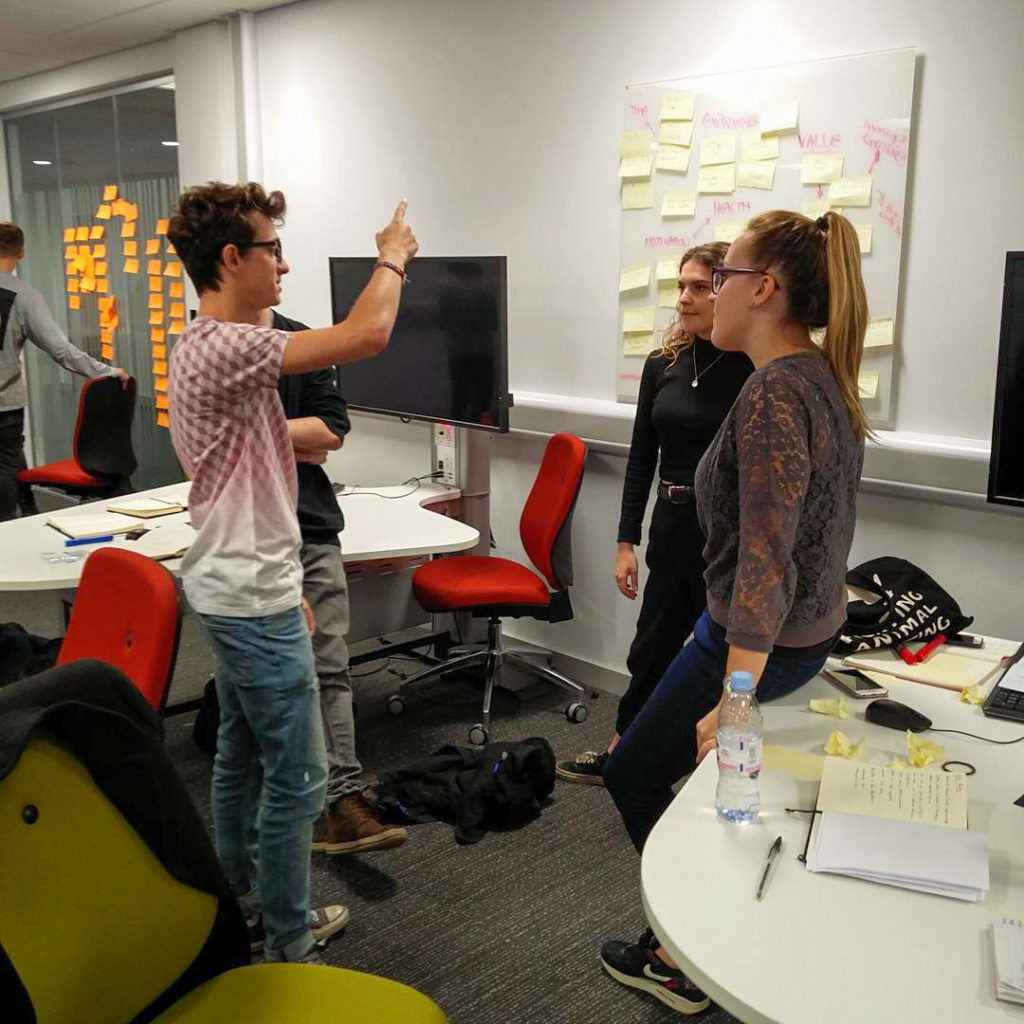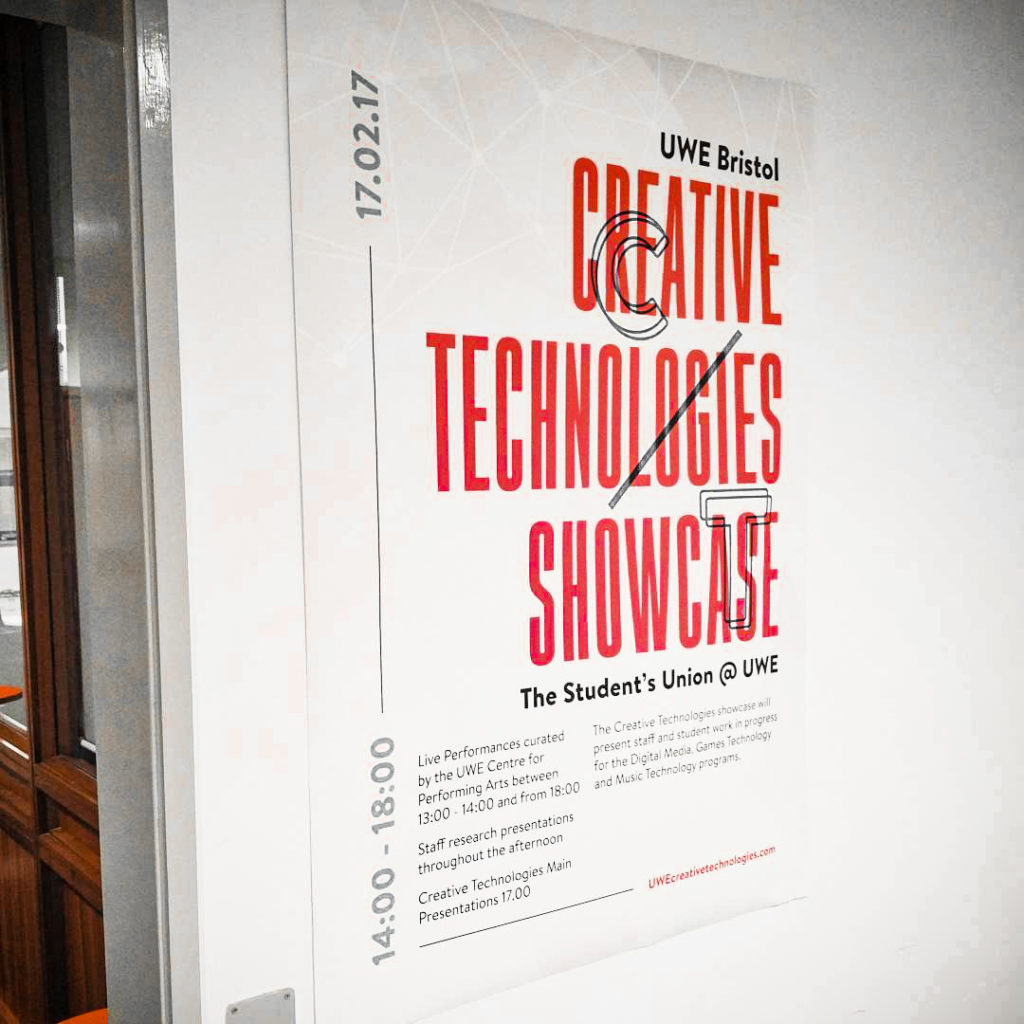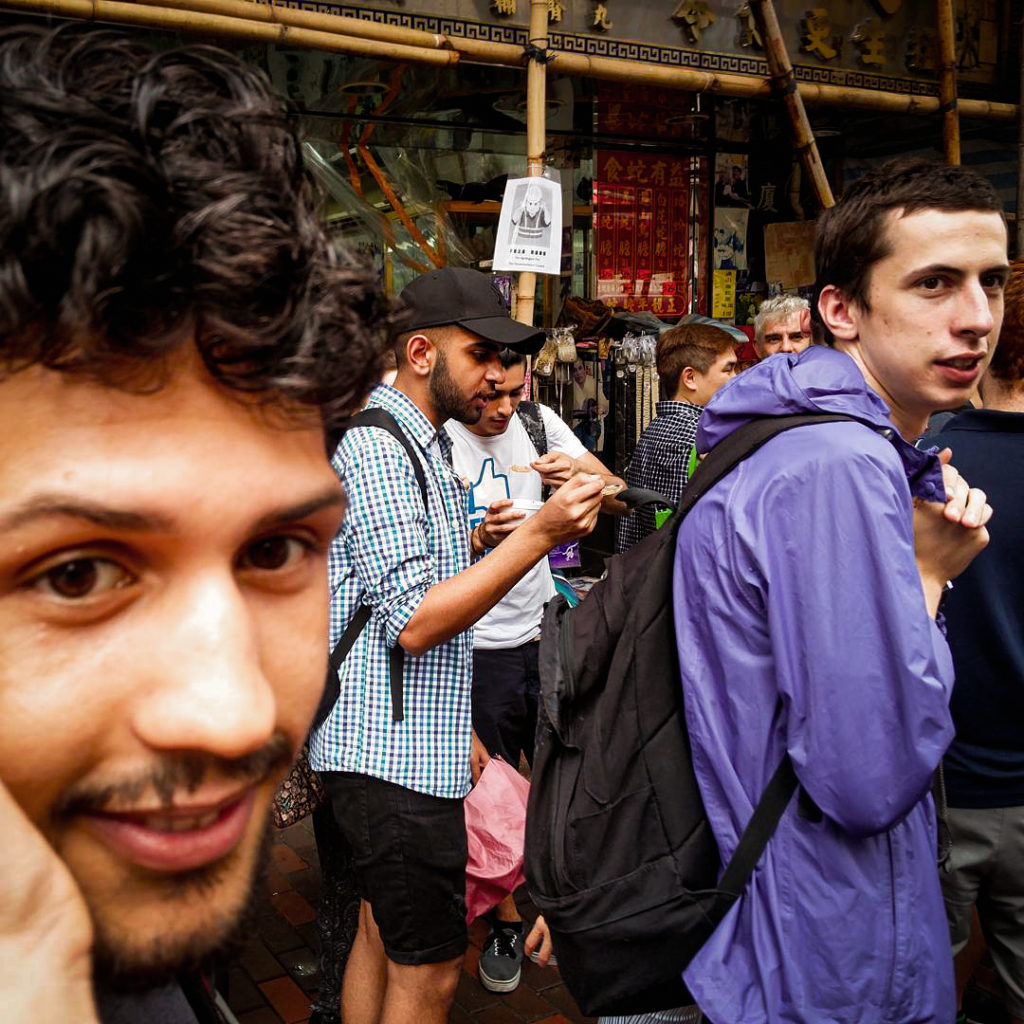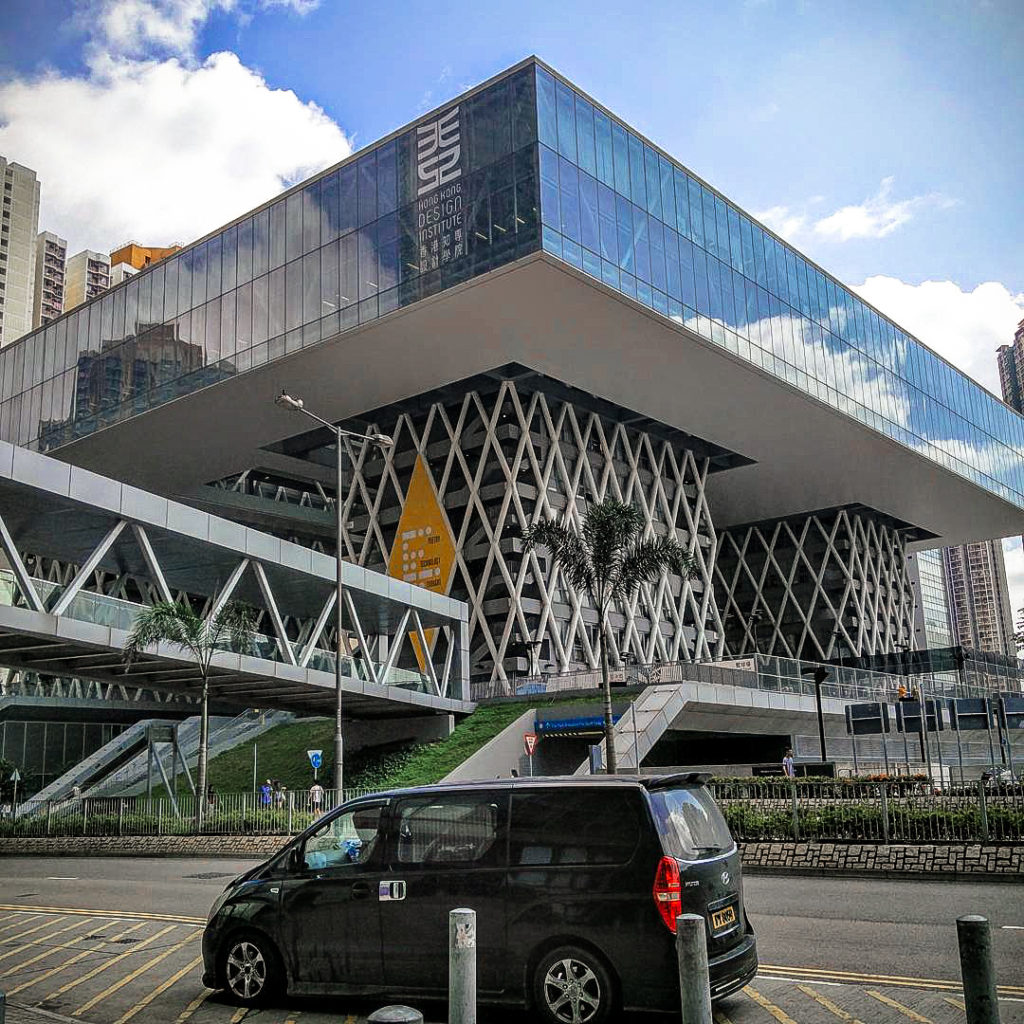In November 2016 I was promoted to the program director of the Digital Media BSc, UWE. The Digital Media BSc focuses on understanding the theory and application of digital media tools and methods to ‘real world social and industry problems’ and entrepreneurship in the creative technology industry.
The program had a teaching staff of 10 lecturers and three associates lecturers. The program had a cohort of 75 students across three years with an optional placement year in industry, Hong Kong, SHAPE or Coppenhagen, ITU. The course when I first took my position as program director was on special measures and in danger of closing. To improve the program I conducted a participatory consultation and review of the program structure with my teaching colleague Dr Dave Meckin and conducted an exchange of staff and students between the SHAPE programs in Hong Kong and Bristol.
I worked with a teaching colleague on the {UWE} program Dr Meckin, Senior Lecturer in Digital Media and began a participatory process of consultation and analysis of the programme structure with students, academics and admin staff at UWE and the Hong Kong Design Institute where the course is jointly run. The program was located within a complex set of institutional and pedagogic structures that required any changes to the program to align within the existing {UWE} and the ~30 specialist digital media programmes accredited {~300 HND SHAPE students} in their final year by our program. It required a nuanced understanding and negotiation with students, FE institutions and major university faculties in the UK and Hong Kong.
Through participatory approach to consultation with students, teaching staff and management in UWE & SHAPE we identified the following three key issues: a lack of programme identity, a lack of consistency across programme teaching, and a lack of publicity both external and internal. In response to this process myself and Dr Meckin successfully designed and submitted for approval four new 30 credit modules for the 2017/2018 academic year (1/3 of the programme). We also developed a number of new and existing partnerships allowing for a range of live briefs, student shows (Creative Technology Showcase) and international student exchange and field trips (Hong Kong, Transmediale, Berlin, ITU, Copenhagen).
In February 2017 I wrote a rationale for provision for more teaching and technical resourcing for the program and presented it to a ‘critical evaluation panel’ consisting of three members of the university executive team. After I completed an evaluation of the program I successfully negotiated the continuation of the course, an increase in our student tariff from 25 to 40, funding for an optional industry placement year, a new senior lecturer position and a commitment to new investment in equipment and facilities for the programme. We saw an increase in applications for the course of 61% (75 applicants 2016/2017, 121 applicants 2017/2018) and a dramatic improvement 45% – 82% in ‘overall student satisfaction’ for our third year cohorts in 2016 & 2017. 45% – 82% in ‘overall students satifaction’ for our third year cohorts in 2016 & 2017.

